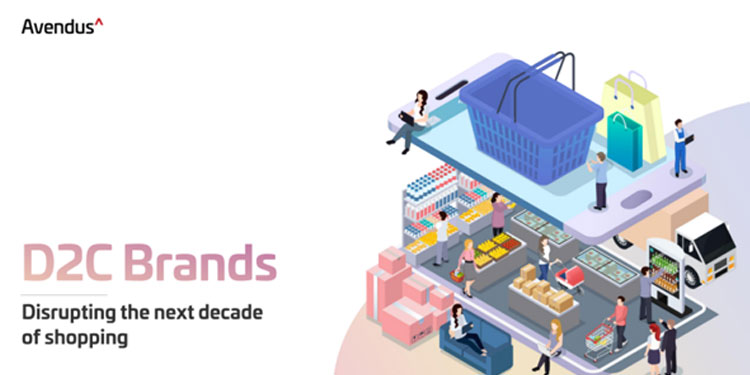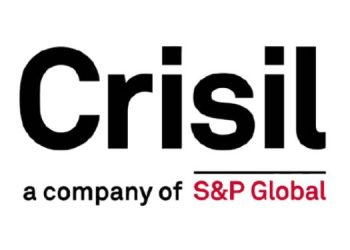Mumbai: Avendus Capital has today published a report on direct-to-consumer (D2C) brands titled, “Decade of D2C – Disrupting the next decade of shopping,“ which provides a comprehensive look at the success factors for D2C brands to emerge and sustain, how the interplay between own platform, marketplaces and omnichannel strategies will transpire; and finally, makes some predictions for exit outcomes in the sector. The report projects that the D2C segment could have a USD 100 billion addressable markets by 2025.
India is one of the largest retail markets in the world, projected to surpass USD 1.7 trillion by 2025. India has added 80 million online shoppers in the last three years alone to reach 130 million. The reports emphasize that the E-tail market in India will lead the shift to organized retail in the next five years, While the macro tailwinds have set the stage well for D2C brands in India, COVID-19 has further accelerated online adoption amidst the temporary closure of physical retail stores and the growing wariness for public places. With this backdrop, online spending in India is expected to grow at a CAGR of 35%+ from USD 39 billion in 2019 to USD 200 billion over the next 5 years, supported by internet and payment infrastructure developments.
The 140-page report underlines the emergence of new-age, direct-to-consumer brands in India, while providing an overall view of the existing landscape of D2C and traditional players in India across sectors, and then deep-dives into three sub sectors: Beauty & Personal Care, Food & Beverages, and Fashion to examine the changes that the D2C phenomena are bringing in each vis-à-vis its global parallels.
On one hand, consumption trends are evolving, and large pockets of product and price white spaces remain untapped by industry incumbents, leaving the new-age consumer unsatiated and seeking niche and customized alternatives. Om the other hand, a strong supporting ecosystem has emerged with horizontal and vertical e-commerce players, social media marketing, plug-and-play supply chain, and logistics options, making the waters warmer than ever before for D2C brands to jump in and capture the opportunity. D2C brands have capitalized on this, with many brands witnessing an unprecedented acceleration in scale in the last few months.

Pankaj Naik, Co-Head of the Digital & Technology Investment Banking practice at Avendus Capital, said, “The internet ecosystem and evolving consumer needs have made new business models viable and have led to the emergence of the direct-to-consumer (D2C) distribution channels. D2C brands with their agile DNA, innovative marketing, efficient operational processes, and effective use of technology are able to leverage consumption insights, work on a feedback-led model and rapidly develop products to ensure that the evolving customer needs are addressed. D2C companies will lead the next decade of shopping for the brand-starved Indian consumers, with their unique and relevant playbook.”
Even though globally D2C brands have demonstrated mixed results, some notable companies, such as Warby Parker, Allbirds, Away, Fenty Beauty, and Perfect Diary, have created significant value for their shareholders by establishing themselves as the clear ‘brand-of-choice’ for a plethora of consumers.
Indian brands have had the opportunity to observe and learn from their global counterparts and operate in a brand-starved environment. Space has seen increased funding activity, with D2C players such as Lenskart, Licious, Zivame, Boat, Wow Skin Sciences, Healthkart, Mamaearth, MyGlamm, Sugar, Incnut, Country Delight, Atomberg, and Lifelong, among others, creating brands in previously unaddressed parts of their sectors with extraordinary value.

Neeraj Shrimali, Executive Director, Digital & Technology Investment Banking practice at Avendus Capital, said, “We expect high levels of funding activity in this space, increasing with the passage of time, as more successful D2C outcomes will validate the hypothesis for newer capital deployment. There will be elevated investor interest in high-quality companies with good growth and a focus on capital efficiency. We anticipate robust consolidation activity in the next 3-4 years, either as roll-ups or incumbents buying new-age D2C companies. Our estimate is that IPO timelines maybe 3-5 years away in this sector. D2C companies will ride the next wave of value creation in e-commerce for all stakeholders and the ecosystem as a whole.”
The D2C space will continue to remain a highly interesting and active space to witness how the next wave of value creation happens in the consumer sector and how consumer behavior evolves going further. The report offers insights for investors, brands, corporates, entrepreneurs, and all stakeholders alike.

















